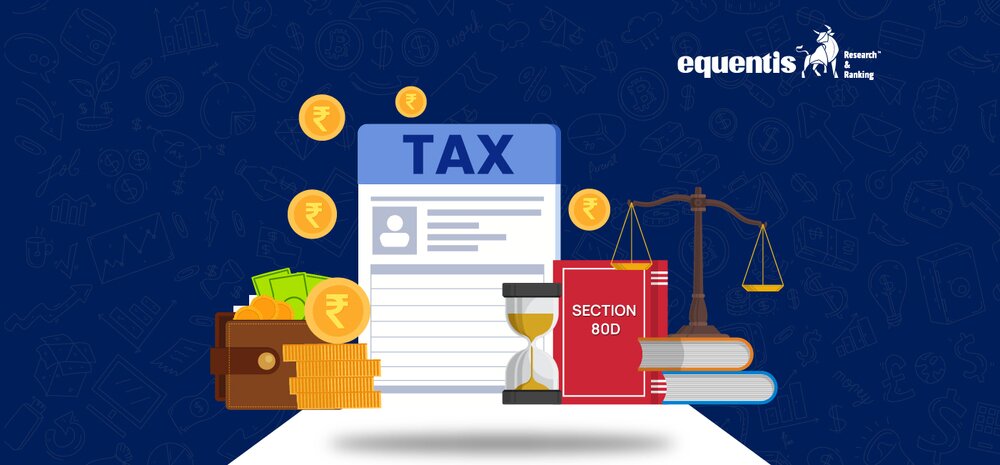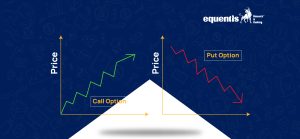After you have understood and answered the primary questions, ‘What is income tax?’ and ‘How do I file an IRTR?’, the next in line is about how one can reduce their tax liability. For this, the government has included multiple provisions for exemptions and deductions that a taxpayer can claim to reduce the payable tax amount. One such provision is the deduction allowed under Section 80D.
What is it? And why do even investment advisory firms insist on understanding it? Read on to learn the details of the deduction under 80D.
What is Section 80D?
Section 80D of the Income Tax Act, 1961, lets you claim deductions on health insurance premiums. You can avail of this benefit for premiums paid for yourself, your spouse, dependent children, and parents. Medical expense deductions for uninsured senior citizen parents are also eligible under this section.
Understanding the Purpose of Section 80D in Income Tax
Section 80D was introduced to encourage individuals to secure health insurance for themselves and their families. This provision serves two purposes: promoting financial security through health insurance and helping taxpayers save on taxes. Section 80D covers more than just premiums; it includes preventive health check-up expenses within the specified limits.
However, the deductions under 80D are only available under the old tax regime. So, if you want to claim this benefit, opt for the old tax regime while filing your returns.
Who Can Claim Deductions Under Section 80D?
Section 80D deductions can be claimed by:
- Individual taxpayers pay the health insurance premium
- for themselves, their spouses, dependent children, and parents.
- A HUF that has paid premiums for any member of the HUF is eligible to claim a deduction.
80D Deduction Limits:
Deduction Limits for Individuals Below 60 Years:
Individuals under 60 can claim up to Rs.25,000 in a year for health insurance premiums paid for themselves, their spouses, and dependent children. Parents under 60 can claim an additional Rs.25,000, making the total limit Rs.50,000.
Additional Limits for Senior Citizens:
The deduction limit for senior citizens (60 years or older) is Rs.50,000 per year. If the taxpayer and their parents are senior citizens, the combined deduction limit increases to Rs.1,00,000 annually. For NRIs, the maximum limit remains Rs.25,000, regardless of age.
Combined Limits for Family and Parents:
When both family and parents are covered, the total deduction limit varies:
- Family and parents below 60: Rs.50,000.
- Family below 60 and parents above 60: Rs.75,000.
- Both family and parents above 60: Rs.1,00,000.
Know More: SEBI Registered investment advisory | Stock investment advisory
What Expenses Are Covered Under Section 80D?
Section 80D of the Income Tax Act provides tax relief for various healthcare expenses, including health insurance premiums, preventive health check-ups, and even medical expenses for senior citizens without insurance. Here’s a detailed breakdown:
- Health Insurance Premiums for Self, Spouse, and Children:
You can claim deductions for your health insurance premiums and those of your spouse and dependent children. The maximum deduction in this case is Rs.25,000 per year. If you or your spouse is a senior citizen (60 years or above), this limit increases to Rs.50,000.
For instance, Rahul, 45, pays Rs.20,000 for a family floater plan that covers him, his wife, and two children. He can claim the full Rs.20,000, which falls within the Rs.25,000 limit.
- Premiums for Dependent Parents (Senior and Non-Senior Citizens):
Taxpayers can also claim deductions on their parent’s health insurance premiums. If the parents are below 60 years, the deduction is capped at Rs.25,000. For senior citizen parents, the limit increases to Rs.50,000. This is over and above the family limit.
For example, say you pay ₹25,000 for your family’s health insurance and ₹30,000 for your senior citizen parents. You can claim ₹25,000 for your family and ₹30,000 for your parents, bringing your total deduction to ₹55,000 under Section 80D.
- Preventive Health Checkups and Their Deduction Limit:
Preventive health check-ups up to Rs.5,000 per year are eligible for deductions within the overall limits of Rs.25,000 or Rs.50,000, depending on the insured’s age. Additionally, if a senior citizen has no health insurance, medical expenses incurred on their treatment can be claimed as a deduction, up to Rs.50,000 annually.
For instance, if you pay Rs.30,000 for your family’s health insurance and Rs.30,000 for medical expenses for your 65-year-old parents, who have no insurance, you can claim Rs.25,000 for your family and Rs.30,000 for your parents, totaling Rs.55,000 under Section 80D.
However, if you spend Rs.3,000 on your health check-up and Rs.2,000 on your parents’ check-up, you can claim the full Rs.5,000 within the overall Section 80D deduction limit.
Apart from these three, if you pay for a multi-year health insurance policy, the total premium is divided proportionately over the policy tenure, and deductions can be claimed yearly. Section 80D ensures financial relief even for senior citizens without insurance by allowing deductions for medical expenses incurred. These benefits make it easier to secure your family’s health and save on taxes simultaneously.
80D Deduction List
Overview of Deductible Expenses Under Section 80D
| Policy For? | Deduction for Self & Family | Deduction for Parents | Preventive Health Check-up | Maximum Deduction |
| Self & Family (below 60 years) | Rs.25,000 | – | Rs.5,000 | Rs.25,000 |
| Self & Family + Parents (all below 60) | Rs.25,000 | Rs.25,000 | Rs.5,000 | Rs.50,000 |
| Self & Family (below 60) + Parents (above 60) | Rs.25,000 | Rs.50,000 | Rs.5,000 | Rs.75,000 |
| Self & Family + Parents (all above 60) | Rs.50,000 | Rs.50,000 | Rs.5,000 | Rs.1,00,000 |
| Members of HUF (below 60 years) | Rs.25,000 | Rs.25,000 | Rs.5,000 | Rs.25,000 |
| Members of HUF (a member above 60 years) | Rs.50,000 | Rs.50,000 | Rs.5,000 | Rs.50,000 |
Key Exclusions Not Covered by Section 80D
- Premiums Paid in Cash: Health insurance premiums paid in cash are not eligible for deductions. Only payments made through digital modes, cheques, or demand drafts qualify.
- Default in Premium Payments: If the health insurance premium is not paid during the financial year, you cannot claim any deduction under Section 80D for that year.
- Employer-Paid Group Health Insurance: If your employer pays the premium for a group health insurance plan covering you and your family, you cannot claim deductions for that amount. The tax benefit applies only to premiums you pay.
- Premiums for Employed Children or Other Relatives: Premiums paid for working children, siblings, uncles, aunts, or grandparents are not eligible for deductions. The benefit is restricted to premiums paid for yourself, your spouse, dependent children, and parents.
Benefits of Claiming Deduction Under Section 80D
- Significant Tax Savings for Individuals and Families
Section 80D offers substantial tax savings by allowing deductions on health insurance premiums and medical expenses. The savings depend on your income tax slab. For example:
- If you fall under the 5% tax slab, you can save up to Rs.1,300 on a Rs.25,000 deduction and Rs.5,200 on a Rs.1,00,000 deduction.
- In the 20% tax slab, the savings range from Rs.5,200 to Rs.20,800.
- With a Rs. 1,00,000 deduction, the savings can reach Rs. 31,200 for the highest tax slab (30%).
This makes health insurance a cost-effective way to protect your health and finances.
- Incentive to Maintain Health Insurance Coverage
Section 80D promotes financial preparedness for medical emergencies by encouraging taxpayers to maintain health insurance coverage. Benefits include tax deductions for health insurance premiums, preventive health check-ups (up to Rs.5,000), and premiums for pre-existing or critical illness covers. Policies also cover ambulance charges, domiciliary expenses, and pre-and-post-hospitalization costs, ensuring comprehensive healthcare protection.
- Comprehensive Financial Protection Against Medical Expenses
Health insurance under Section 80D reduces financial stress during medical emergencies. It covers cashless hospitalizations, ambulance charges, and pre/post-treatment expenses. Plus, the coverage for pre-existing and critical illnesses ensures you can access quality healthcare without affecting your financial stability.
How to Claim 80D Deduction in Income Tax Returns
Step-by-Step Guide to Filing for Section 80D Deduction
- Gather all documents, including proof of payment for health insurance premiums and receipts for medical expenses.
- Compute deductions allowed under Section 80D
- Fill out Schedule 80D by following the steps for how to file ITR online:-
- Log in to the ITR e-filing portal and select the appropriate ITR form (ITR-1 or ITR-4).
- Go to “Gross Total Income” and click “Tax Deductions.”
- Select “Yes” for eligibility to claim health insurance premium deductions.
- Fill in details of health insurance premiums and preventive health check-ups in Schedule 80D.
- Verify the information and submit it. The tax department will adjust your taxable income accordingly.
Documents Required for Claiming Deduction
Apart from the regular tax filing documents like PAN card, Form 16, Form 26AS, Aadhaar card, and bank statements, you will need specific documents to claim the Section 80D deduction for health insurance premiums. These include premium payment receipts for health insurance policies and copies of the health insurance policy documents.
Common Mistakes to Avoid When Claiming 80D Deduction
- Miscalculating the Deduction Limit
Many forget to include the entire premium amount, including handling and administrative charges. To get the full benefit, ensure that you account for all components of the insurance premium when claiming your deduction.
- Submitting Incomplete or Incorrect Documents
Proof of payment is crucial when claiming the 80D deduction. Failure to submit receipts, canceled cheques, or other relevant documents can lead to the rejection of your claim. Always double-check that all required documents are included.
- Failing to Include Preventive Health Checkups
Don’t overlook claiming deductions for preventive health checkups. Deductions of up to Rs.5,000 apply, and many miss this when filing. Be sure to include any preventive checkup expenses you’ve incurred during the financial year.
Section 80D and Other Income Tax Benefits
Comparison With Other Health-Related Deductions
| Point of Difference | Section 80D | Section 80DD | Section 80DDB | Section 80U | Section 80C | Section 10(10D) |
| Purpose | Tax deduction for health insurance premiums and preventive health check-ups. | Tax deduction for medical treatment of a dependent with a disability. | Tax deduction for specified diseases or ailments for self or dependents. | Tax deduction for medical treatment of an individual with a disability. | Deductions for tax-saving investments like PPF, ELSS, life insurance premiums, etc. | Tax exemption for insurance payouts received by nominees in case of the policyholder’s death. |
| Maximum Deduction Limit | Rs.1,00,000 (for self, family, and senior citizen parents). | Rs.75,000 for disability; Rs.1,25,000 for severe disability. | Rs.40,000 (below 60); Rs.1,00,000 (60 or above) or the amount spent, whichever is lower. | Rs.75,000 for disability; Rs.1,25,000 for severe disability. | Rs.1,50,000 per financial year. | No maximum limit for the exempted amount. |
| Type of Assessee | Individual or HUF. | Resident Individual or HUF. | Resident Individual or HUF. | Resident Individual. | Individual or HUF. | Individual or nominee receiving insurance payout. |
| Scope of Tax Benefits | Covers premiums for self, spouse, children, parents, and preventive check-ups. | Covers medical treatment, training, or rehabilitation of a dependent with a disability. | Covers expenses for treating specific diseases like cancer, renal failure, etc. | Provides relief to individuals with certified disabilities. | Covers long-term savings and investment plans. | Focused solely on life insurance payouts and surrender values. |
How Section 80D Complements Section 80C for Tax Savings
Section 80D provides additional tax-saving opportunities beyond Section 80C. While Section 80C focuses on investments like PPF, EPF, and life insurance premiums, Section 80D addresses health insurance premiums and medical expenses. Together, these sections allow taxpayers to reduce taxable income more effectively:
- Section 80C covers deductions up to Rs.1,50,000, primarily for long-term savings and investments.
- Section 80D allows up to Rs.1,00,000 for medical and health-related expenses, adding a layer of financial security.
So suppose you invest Rs.1,50,000 in PPF and ELSS under Section 80C and pay Rs.25,000 for health insurance premiums for yourself and Rs.50,000 for your senior citizen parents under Section 80D. You can claim a total deduction of Rs.2,25,000 (Rs.1,50,000 under 80C + Rs.75,000 under 80D) and reduce your taxable income.
Conclusion:
Maximize your tax savings with Section 80D health deductions by understanding its intricacies and how it fits into broader income tax concepts. Section 80D is a crucial part of the Income Tax Act that allows you to claim significant deductions on health insurance premiums while securing your financial and physical well-being. This provision is the perfect way to balance future security with immediate tax benefits.
Related Posts
Disclaimer Note: The securities quoted, if any, are for illustration only and are not recommendatory. This article is for education purposes only and shall not be considered a recommendation or investment advice by Equentis – Research & Ranking. We will not be liable for any losses that may occur. Investments in the securities market are subject to market risks. Read all the related documents carefully before investing. Registration granted by SEBI, membership of BASL & certification from NISM in no way guarantee the performance of the intermediary or provide any assurance of returns to investors.
FAQ
Can a taxpayer claim both 80C and 80D deductions?
Yes, taxpayers can claim tax deductions under Section 80C and Section 80D if they follow the old tax regime.
Am I eligible for tax benefits if I hold multiple health insurance policies?s
Yes, you can claim tax deductions for premiums paid on multiple health insurance policies if you meet all eligibility criteria.
Can I claim both 80DD and 80D deductions together?
Section 80DD provides a tax deduction for expenses related to the treatment, rehabilitation, or training of a disabled dependent. However, you cannot claim 80D and 80DD deductions for the same dependent person.
How useful was this post?
Click on a star to rate it!
Average rating 0 / 5. Vote count: 0
No votes so far! Be the first to rate this post.
I’m Archana R. Chettiar, an experienced content creator with
an affinity for writing on personal finance and other financial content. I
love to write on equity investing, retirement, managing money, and more.
- Archana Chettiar








































